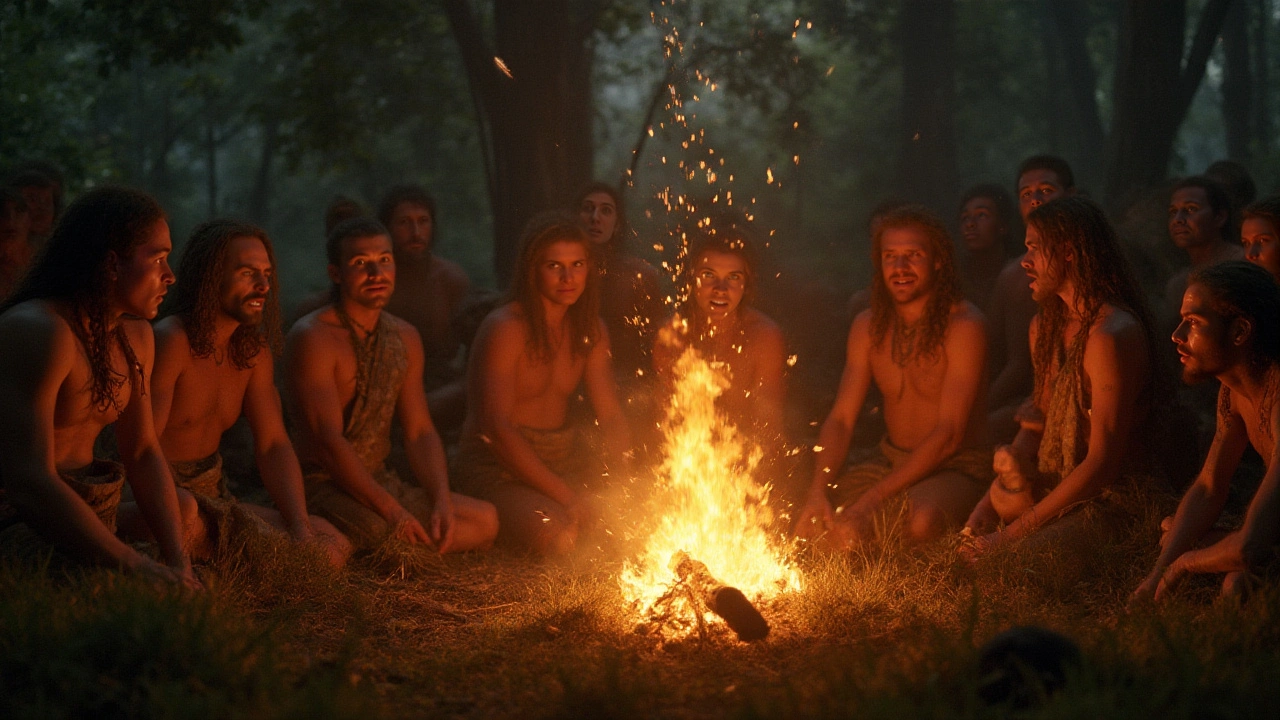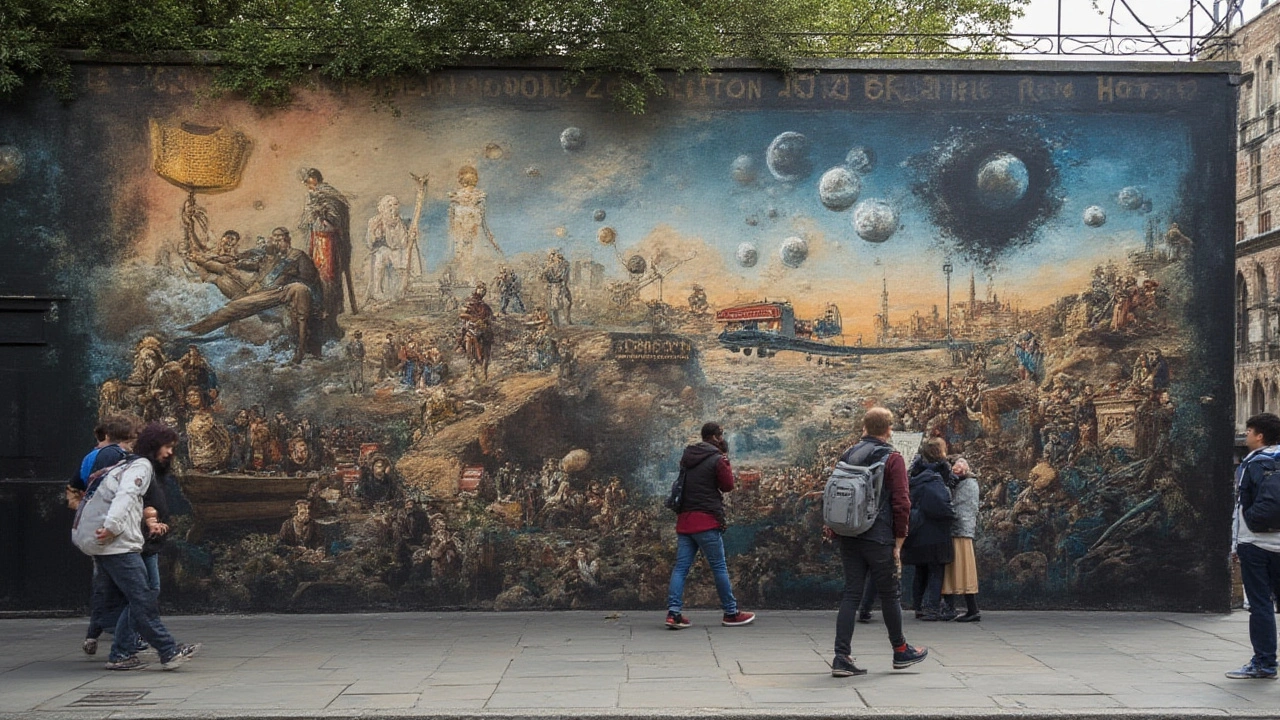
Picture this—every single day on Earth, someone’s declaring some event “the most important ever.” But the real answer? It’s messier, debated, and way more fascinating than any textbook lets on. For every atomic bomb drop or Declaration of Independence, there’s a quieter, sneakier moment quietly shifting the course for billions. Want to know which day actually takes the crown? Turns out, it depends on what you count as “important”—our survival, our ideas, or our future. Let’s get right into the debate, history buff or not.
The Birth of Fire: Humanity’s Real Spark?
Long before cities, smartphones, or even basic language, came a game-changer that sounds almost dull today: mastering fire. Imagine early hominins, huddled together in some damp cave, shivering, waiting for predators to make the first move. Then, one day (around 1.7 million years ago, if you trust the studies from Wonderwerk Cave in South Africa), someone figured out how to control fire. Not starting it—that probably happened by accident with lightning strikes—but keeping it going, sharing it, and protecting it.
This single shift sliced our nights in half—suddenly, evenings weren’t just about staying hidden. Roasting meat led to better brains and bodies, fewer diseases, and a new menu that turbocharged evolution. Researchers at Harvard argue that cooking might be the secret behind our impressive noggins. Dig deeper, and fire is also the start of our tech obsession—it leads to metal, glass, steam, electricity, and, way down the line, the internet.
Of course, pinpointing the “first” day this happened is impossible. But there’s no denying that human mastery over fire didn’t just light up the night. It lit up our future—right up to every modern marvel we’re surrounded by now. If time travelers could go back, odds are fire’s first night would be the moment they’d want to watch, even if it looked pretty tame compared to a rocket launch.
The First Word: The Day Language Was Born
You’re reading this, so language is second nature. But what about the day humans started to actually talk—form real, symbolic language? Most linguists think it happened at least 50,000 years ago, thanks to a genetic mutation called FOXP2 that allowed our vocal cords and brains to sync up. Sounds technical, but that kickstarted everything from grunting about dinner to sharing myths and making laws.
Consider this: one tribe could now trade secrets with another, warn about danger, plan a hunt, or even settle an argument. Cultures, names, and histories—suddenly, these things were possible. Archaeologist Steven Mithen points out that the sudden explosion of cave art, beads, burial rituals, and figurines all show up right after language became our go-to tool. Those symbols on cave walls in Lascaux, France, from 17,000 years ago? Thank the first storytellers. Without words, there’s no Shakespeare, no science, and no tweets (for better or worse).
We tend to love big events, like the invention of the printing press, which cranked out books by the thousands in 1440. But none of that’s possible without language at the core. Old or new, written or spoken, language is still the software running our entire civilization, from WhatsApp to Parliament. That “eureka!” moment when Homo sapiens first strung a few words together—well, everything from love poetry to arguing on the internet flows from that.
From Pixels to Power: The First Computer Switch
If you want a date in history that changed the world in ways we still feel every second, fast forward to June 21, 1948. That’s when the first stored-program computer, called the Manchester Baby, ran its first proper program at the University of Manchester. Imagine small, chalk-dusty rooms packed with valves, wires, and a handful of nervous blokes holding their breath as the Baby solves a mathematical problem entirely on its own. That was the very first ancestor of the laptops, game consoles, and smartphones we mess with every single day.
This moment isn’t as flashy as men landing on the Moon, but it shaped the future. The stored-program concept allowed instructions to be changed as easily as data—no more setting up rooms full of wires for each new task. Alan Turing, the Manchester team, and countless others made the future of “thinking machines” real. The result? The Digital Revolution. Artificial intelligence, email, cat memes—and yes, even digital money. Most people only heard about the Baby years later, lost in the buzz around bigger, faster computers like ENIAC and UNIVAC, but Manchester’s Baby was the “first heartbeat” in the age of AI.
People sometimes point to the printing press, the telephone, or even penicillin as civilization’s game-changer. But if you look at everyday life now versus even seventy years ago, computers have utterly rewritten the rules of work, social life, medicine, and entertainment. It’s almost scary how much a single on/off switch has come to define an age.
Shooting for the Moon: When We Left Earth
For pure drama, not much tops July 20, 1969. The world held its breath as Neil Armstrong and Buzz Aldrin stepped off Apollo 11 and onto the Moon. Try to imagine that feeling: you’re squeezed in a room with your family, eyes glued to a grainy TV, “One small step for man…” echoing through a boxy speaker. Suddenly, all Earth’s boundaries—oceans, mountains, politics—seem like nothing compared to that black sky above. Two guys in bulky suits pounding the dusty surface proved, for once, that humanity was bigger than its home planet.
Obviously, humans had fired up plenty of “firsts” before this—radio, vaccines, democracy, the wheel. But the Moon landing was the first time we visibly left home. Over 600 million people watched live, a world record at the time, and it inspired everything from “Star Wars” to GPS navigation. Even now, scientists, artists, and kids can point to that day and say, “If humans can do that, what’s next?”
It wasn’t just Yanks versus Soviets. The moonwalk marked a milestone for everyone stuck on this blue ball—proof that if you put enough brains and stubbornness together, even gravity can lose a round or two. Sure, critics point out that we haven’t gone much further in manned exploration since, but the culture shock of watching those first steps still lingers. You can credit this moment for space science, countless inventions, and the belief that no dream is too far out.

The Hidden Giants: Forgettable Days with Huge Impact
Not every world-changing day is a headline event. Plenty of turning points in human history snuck up on us—no fireworks, no ticker-tape parades, just quiet ripples that turned tidal waves years later. Ever hear of December 14, 1542? That’s when Mary, Queen of Scots, became queen—kicking off a rivalry that would shape the whole of British history for centuries, even if nobody realized it that morning. Or March 10, 1876? Alexander Graham Bell called his assistant and said, “Mr. Watson, come here, I want to see you.” First words on a telephone—hello, modern communication.
Then there’s November 8, 1895—the day X-rays were discovered by accident in a German lab. Suddenly, doctors didn’t have to guess what was broken in your body. World-changing, with absolutely no fanfare. Even more recently, April 26, 1986: Chernobyl’s disaster changed how the world looked at energy and risk, sparking new green movements long before anyone talked about a climate crisis.
So, what’s the takeaway? Most days that changed everything didn’t feel like a big deal to the people living through them. Sometimes it’s a newsflash—other times, like the internet’s “birth,” it’s a footnote at first. The lesson: never assume “ordinary” means “unimportant.”